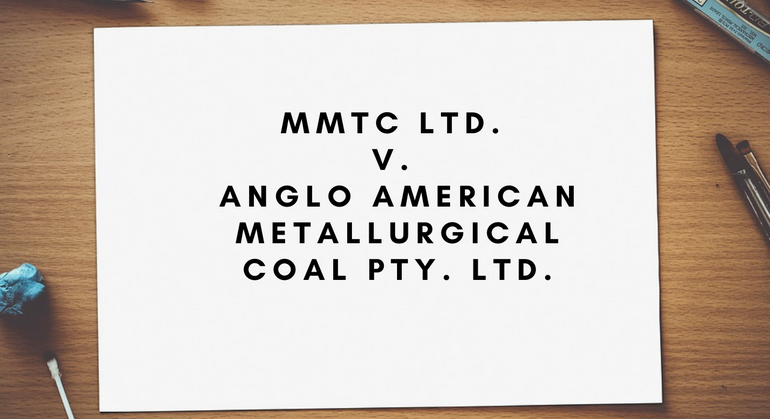

MMTC Ltd. v. Anglo American Metallurgical Coal Pty. Ltd.
The present case involves an appeal under section 37 of the Arbitration Act against a judgment which was passed by a single judge of the Delhi High Court under section 34 of the Arbitration Act, dismissing objections to a majority arbitral award. The appellant in this case (Indian Government) entered into a long-term agreement with the respondent, on 7th March 2007. The appellant thereby agreed to purchase some quantity of coking coal from the respondent over three delivery periods. The Agreement was later modified by an addendum to have two more delivery periods in an extension of the timeline. In the meanwhile, after the issuance of the addendum in the Agreement, the appellant requested to lessen the price of the coal for the fifth delivery lot, given the prevailing global monetary crisis at the time.
The dispute, therefore, arose in relation to the fifth lot of coking coal wherein the appellant maintained that the respondent failed to supply 4,54,034 metric tonne of coking coal while to the contrary, the respondent contended that the appellant failed to purchase the coal in breach of an agreement.
The respondent during the arbitral proceedings claimed damages on account of non-lifting of 4,53,034 a metric tonne of coking coal by the appellant, which was permitted by the arbitral tribunal, to grant damages to the tune of 78,720,414.92 USD by award dated 12th May 2014. Thereafter, the appellant challenged this award under section 34 of the Arbitration Act and failed.
Judgment
The Court held in proceedings conducted under section 37 of the Arbitration Act, that the Court is not to re-appreciate evidence, much less in a case where the arbitral tribunal, as well as the single Judge under section 34, have agreed with some view on the facts of the case. However, it is also the law that where a factual inference is based on no evidence, the Court may interfere with such inference even under section 37 of the Arbitration Act.
In this case, the Court was of the view that the judgment is based on imaginary evidence, which is the same as a judgment rendered on no evidence or ignorance of vital evidence. A decision that is based on such imaginary documents would necessarily be perverse. The Court relied upon the decision in Associate Builders v. DDA and held that if the majority of the arbitrators in the arbitral tribunal ignore what is clearly stated in commercial correspondence and read into e-mails words that do not exist or ignore words that are contained in e-mails, this can only pave the way for complete injustice. The award in question was therefore set aside and in the circumstances, the parties are left to bear their own costs.



